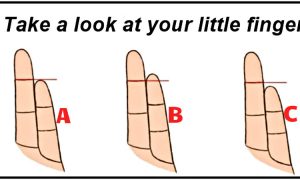What is gaslighting?
Gaslighting is a pattern of emotionally abusive behavior that’s all about controlling and isolating another person.
“One of the ways gaslighters accomplish this is by making their victim question their sanity, so they rely more and more on them for their ‘correct’ version of reality,” says Stephanie Moulton Sarkis, Ph.D., a psychotherapist and author of Gaslighting: Recognize Manipulative And Emotionally Abusive People — And Break Free.
As they break down your confidence in your thoughts, feelings, perceptions, and experiences, they gain more power over you — making it harder to escape their grasp.
The psychological term ‘gaslighting’ comes from a 1938 play called Gas Light, during which a manipulative husband attempts to drive his loving wife crazy, namely by dimming the lights from the attic.
When she points out the change, he claims it’s all in her head.
If you think the person you love would never do something like that, understand that anyone can be a gaslighter — sometimes even unknowingly — and often, the process starts so gradually you don’t even notice what’s happening.
Here are nine super subtle signs to look out for, and what to do if you know, deep down, the lights have been getting dimmer.
1. You catch your partner in weird little lies
“Gaslighters will lie constantly, even about things where they really have no incentive or reason to lie,” says Sarkis.
What’s more, they’ll frequently deny the truth no matter how obvious it is (as in, ‘the wall is purple’ when it’s green), adds Rachel Wright, a psychotherapist and co-founder of the Wright Wellness Center
The goal is to plant doubt in you, because they’re so sure that the lie is true.
2. They question your memory
Gaslighters will tell you that what you saw, heard, or experienced did not happen — or, at the very least, that you remembered part of it wrong.
They might downplay your memory of an event with lines like, ‘it didn’t happen like that’ or ‘you’re not getting enough sleep lately — that’s not what I said.’
Then, they’ll ‘correct’ your story, even though your version was 100% accurate, explains Katy Leigh-Witt, manager of phone services for the National Domestic Violence Hotline and loveisrespect.
3. Their ‘jokes’ aren’t funny
Gaslighters will take a jab at you, but use it as a joke or say they’re ‘just kidding,’ even though they’re aiming a dagger at your heart, says Wright.
“A gaslighter will attack the foundation of who you are and what you love most about yourself,” she says, from your identity as a mother or sister to your career and talents.
By doing this, they whittle away at your confidence and sense of self.
4. You keep asking yourself if you’re ‘too sensitive.’
Get upset with a gaslighter, and they’ll minimize your feelings or even deny that what they did was hurtful in the first place.
As a result, you may begin to question your own emotions.
‘Stop being so sensitive!’ or ‘I didn’t know you were so touchy’ are common refrains, even though your reactions are legitimate and reasonable.
5. But… they always make you feel so much better
Dating a gaslighter can turn into an endless cycle of ups and downs, with their hand on the control switch. Prime example: they’ll tear you down just to build you up a moment later.
“A gaslighter will dole out criticism and then either deny it or be the one to make you feel better,” explains Wright. “This creates a feeling of frustration but also love (see the confusion here?).”






















